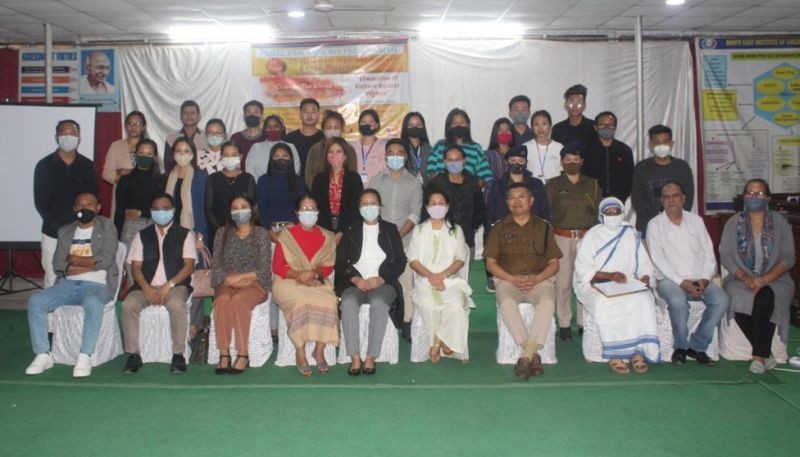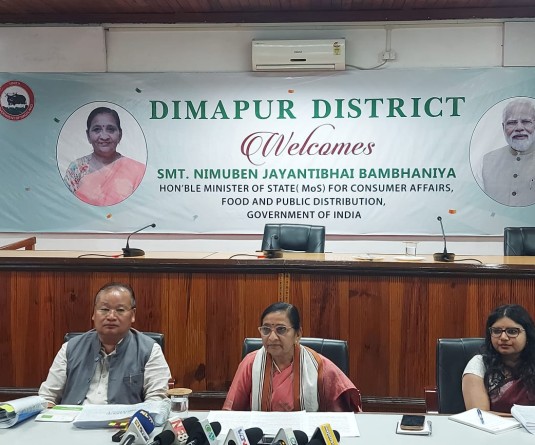
Dimapur, December 2 (MExN): A panel discussion on ‘16 Days of Activism against Gender Based Violence’ was organized by the District Administration Dimapur, District Level Centre for Women-MSK & Sakhi- One Stop Centre, Dimapur in collaboration with the North East Institute of Social Science and Research (NEISSR), on November 30.
According to a DIPR report received here on Wednesday, the programme was organized under the theme ‘Orange the World: Fund, Respond, Prevent, Collect,’ with limited number of invitees and participants, in view of the ongoing COVID-19 situation.
During the programme which was chaired by Dhonthaidi Langthasa, District Coordinator, DLCW-MSK, Dimapur, Dr Toli Kiba, Professor NEISSR invoked the blessings for the programme and Rev Dr C.P Anto, Principal NEISSR gave the welcome note as well as a brief highlight on the context of women in the present society.
The DIPR stated that the keynote address was given by WWO, DLCW-MSK, who elaborated on violence against women and the need to promote the culture of equality, for which education and awareness are the tools to be used.
The Panel discussion was moderated by Vitonuo Gugu Haralu and the panelists were Relo T Aye, ADCP Crime Branch, Dimapur, Sungsabeni Jamio, President, Naga Women Hoho Dimapur, K Ela, Director, Prodigals Home, Dimapur, Elizabeth Humtsoe, Assistant Professor, City Law College, Dimapur and Jenpu Rongmei, Founder & Chief Functionary, Can Youth, Dimapur.
Coming from different backgrounds, the panelists shared their personal experiences at the grassroot level, citing relevant issues related to women, according to the DIPR.
It said that they urged and encouraged everyone to work together and support prevention of violence against women and girls. A collective effort must be put in to make our state a safer place by giving the best possible services, it added.
According to the DIPR report, Relo T Aye stressed on the importance of respecting women and laid emphasis on how the practice of violence inside the family is captured by the children which often results in replication of the same cycle of violence. K Ela said that women with disabilities are the worst affected section of the society facing various abuses and pointed out that such cases are often not taken up by the society.
Sungsabeni Jamio, addressed the issues of discrimination which first begins within the family itself, where women are subjected to violence and often tend to tolerate the injustice in silence. She encouraged women and girls to be strong and bold enough to raise their voice on what is right for them.
In addition, Elizabeth gave a brief insight on the importance of knowing individual rights and availing services provided by the law and the government. She also specified that custody of children is one of the issue faced by women, due to lack of legal knowledge and procedures.
Jenpu Rongmei stressed on the need for proper advocacy, community based policies and the compromises of violence in the name of religion.
The programme was followed by an open discussion where many practical issues were discussed along with relevant ways and means to prevent violence among women and men as well. The programme ended with a vote of thanks by Bovili K Chishi, Case worker, Sakhi, Dimapur.





